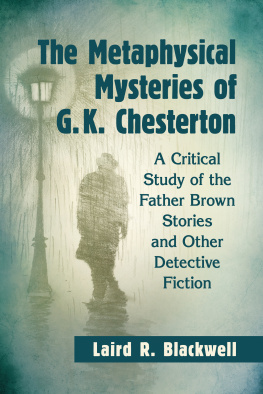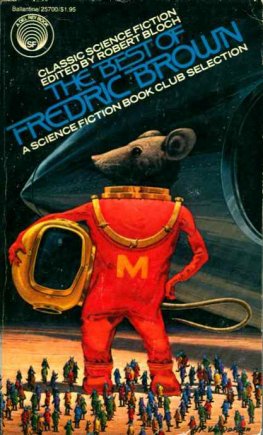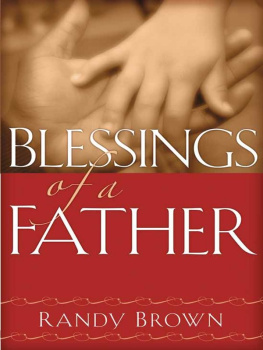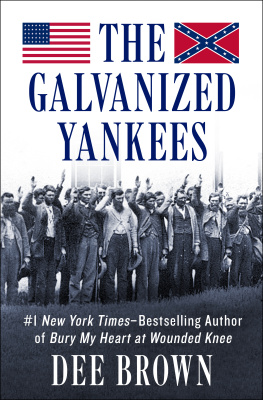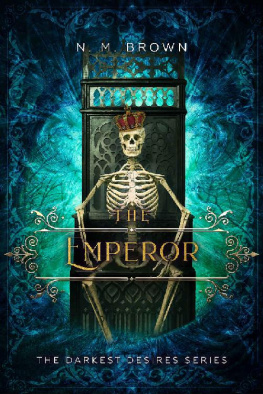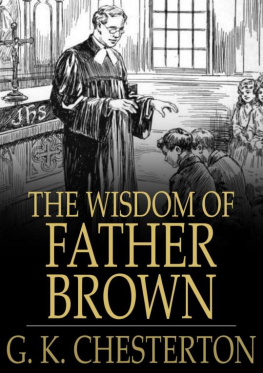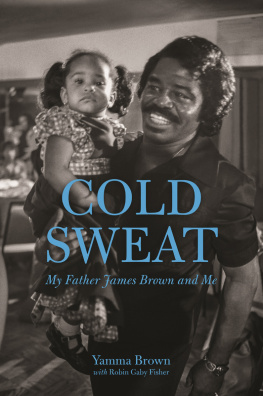
Also by Laird R. Blackwell
H.C. Baileys Reggie Fortune and the Golden Age of Detective Fiction (McFarland, 2017)
The Metaphysical Mysteries of G.K. Chesterton
A Critical Study of the Father Brown Stories and Other Detective Fiction
Laird R. Blackwell

McFarland & Company, Inc., Publishers
Jefferson, North Carolina
LIBRARY OF CONGRESS CATALOGUING DATA ARE AVAILABLE
BRITISH LIBRARY CATALOGUING DATA ARE AVAILABLE
e-ISBN: 978-1-4766-3137-0
2018 Laird R. Blackwell. All rights reserved
No part of this book may be reproduced or transmitted in any form or by any means, electronic or mechanical, including photocopying or recording, or by any information storage and retrieval system, without permission in writing from the publisher.
Front cover image 2017 nikolaj2/iStock
McFarland & Company, Inc., Publishers
Box 611, Jefferson, North Carolina 28640
www.mcfarlandpub.com
To my loving wife Melinda, who has brought
both the metaphysical and the mystery to our marriage
and our life together. I am so much the better for it!
Acknowledgments
Thanks to G.K. Chesterton for his innocence, wisdom, and incredulity and his inspiration in bringing Father Brown and his other detectives to an eager and appreciative audience, and thanks to readers over the decades who have kept those detectives alive and well,
Thanks to Joseph Campbell and especially to Carl Jung for their insight into the human mind with all its flaws and its promise, its risks and its possibilities. I was fortunate enough this year to visit Jung's "tower" in Bollingen along Lake Zurich and see his carvings of the "inhabitants" of his unconscious. He exemplified bringing the "spirit" into articulate form.
And lastly, thanks to the editors and publishers who have helped me bring my passions into print, and to the readers who have responded to my work so enthusiastically.
Preface:
All That Mysterious Stuff
As a youngster fascinated by mystery and detection I was enthralled by the clippety-clop of the horse-drawn carriage on the cobblestone streets of foggy London and by Sherlock Holmes, that cold and distant and brilliant intellect and supreme solver of puzzles and crimes. Only later, but still in childhood, did I meet that inconspicuous and enigmatic cleric and detective Father Brown. Reading one of his paradoxical tales as a child was much like reading Moby-Dick at that same young age: they were both captivating adventures, but all that mysterious stuff in the deeps beneath the whale and behind the round, dumpling face of Father Brown was intriguing but mostly just puzzling. I knew there was something more than the surface stories, but I couldnt really understand what that something more was. But apparently enough seeped in to provoke and inspire me to re-read them many years later with my adult innocence and wisdom.
I wasnt ever attracted to religion or formal creed, but even early in my life I was intrigued by spiritual questions and possibilities. And in the Father Brown stories there was very little religion but much spirituality. As Martin Gardner, after extensive and detailed study of The Innocence of Father Brown, puts it in the introduction to his Annotated Innocence of Father Brown, In this first of the Father Brown books there is surprisingly little rhetoric that is uniquely Catholic. With rare exceptions the metaphysical messages are worth pondering regardless of your beliefs, even if you are an atheist (5). So that was the something more in the Father Brown stories and in Moby-Dick that I wasnt yet ready to understandthe metaphysical messages that were worth pondering whatever you believed. So it wasnt that the stories turned the young me away (because of overt religious aspects), but rather it was I who turned away from them because I wasnt yet experienced or mature enough. Moby-Dick and the Father Brown tales would have to wait for me to grow into them.
And part of that growing into them was my study of psychology and mythology in college and graduate school, encountering the provocative ideas and perspectives of Carl Jung and Joseph Campbell, among others, at a time when I was ripe for a psychological/mythological perspective on spirituality. I was fascinated with these views on the developing relationship between the life energy/spirit/Being and its manifestations in form and between the unconscious and the egoboth within the individual personality and in the world at large. And as I got deeper into Jung and Campbell and transpersonal psychology, I began to have a glimmer of what intrigued me so much about both Moby-Dick and the detective stories of Father Brown, so I reread them both, and this time I had a much greater appreciation and understanding of their something more and its significance. I recognized then that both could be read as parables of the interplay of the life energy (from now on I will use energy and spirit interchangeably) with form, the dance so filled with possibility and risk along the human journey toward health and wholeness and along the journey of spirit toward manifestation and expression in life. This classic novel and these famous short stories sparkle with articulate and powerful prose, fantastic atmosphere, vivid descriptions, and provocative social critique, but their appeal goes much deeper into an exploration of the wonder and enigma of life and its profound questions (Is it I, God, or who that lifts this arm?Melville, p. 444). Father Brown and his stories are interesting and appealing as detective stories but also contain so much more than meets the eye, and this so much more is a major part of the meaning and impact of these tales. Indeed, Father Brown is one of the great probers of mysteries in modern fiction (Wright, 1927, p. 19) not only of the crime mysteries that confront the detective but of the deeper mysteries of life and human consciousness that confront us all. And the Father Brown stories were not written in isolation; there were a couple other less famous Chesterton detectives who led up to Brown and several other sleuths of puzzles and paradoxes who followed him. The main focus of this monograph will be on Father Brown, but we will also examine Chestertons other detectives and their tales to see how they relate to the stories of their much more famous sibling and to those metaphysical themes so prevalent in the Father Brown stories.
There are numerous biographies and critical studies of Chestertons life and works, but none of them make more than a brief mention of the Father Brown stories or the tales of his other detectives, focusing their attention instead on his scores of more serious books. There are only a few critical essays devoted exclusively or mostly to the Father Brown stories or to any of Chestertons other detective stories (e.g. Waibel, 2001; Schenkel, 2006, Robson, 1974; and Porter, 1984). Porter is especially interesting, identifying some of the important themes in the stories that the present work will be discussing, but all of these critical essays are short and spend very little time on the so much more than meets the eye that is the heart of this book.
Although some aspects of the plots of these stories have had to be revealed for the purposes of analysis and explanation, most of the secrets of puzzle and solution have been carefully kept quiet; nonetheless, you might want to read the stories, if you havent already, before continuing, if you want to experience their full clue-puzzle effect.
Next page
